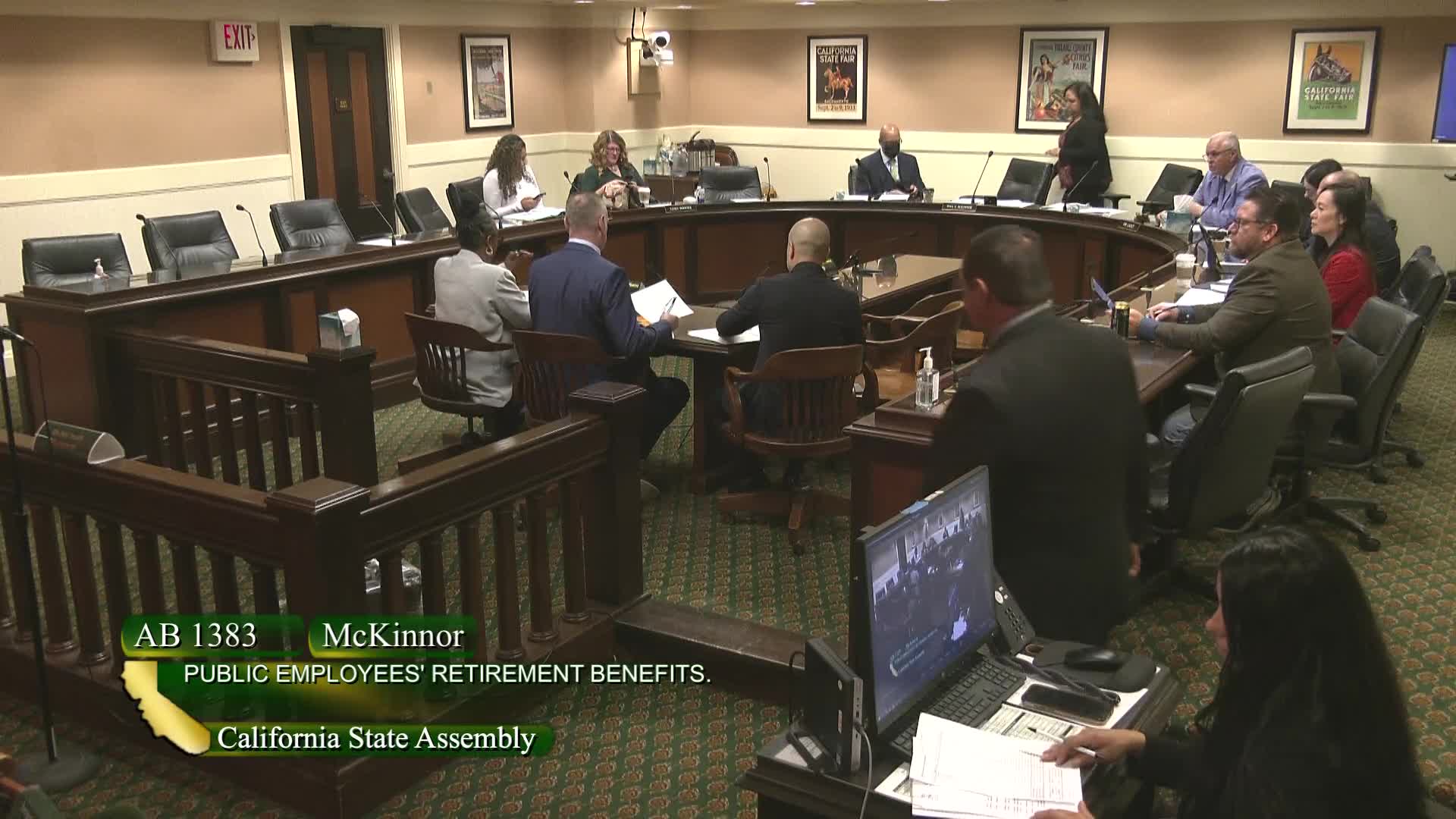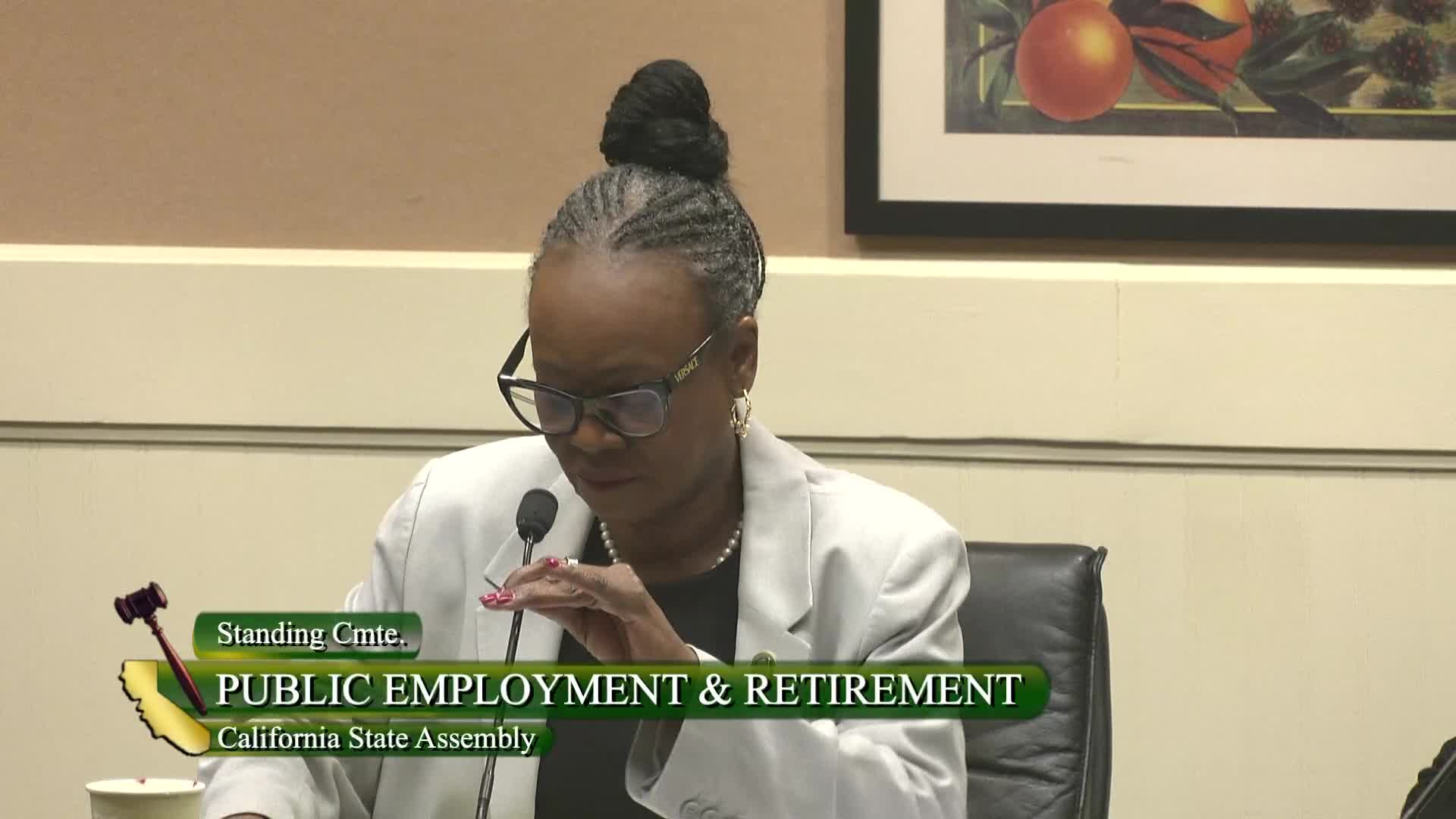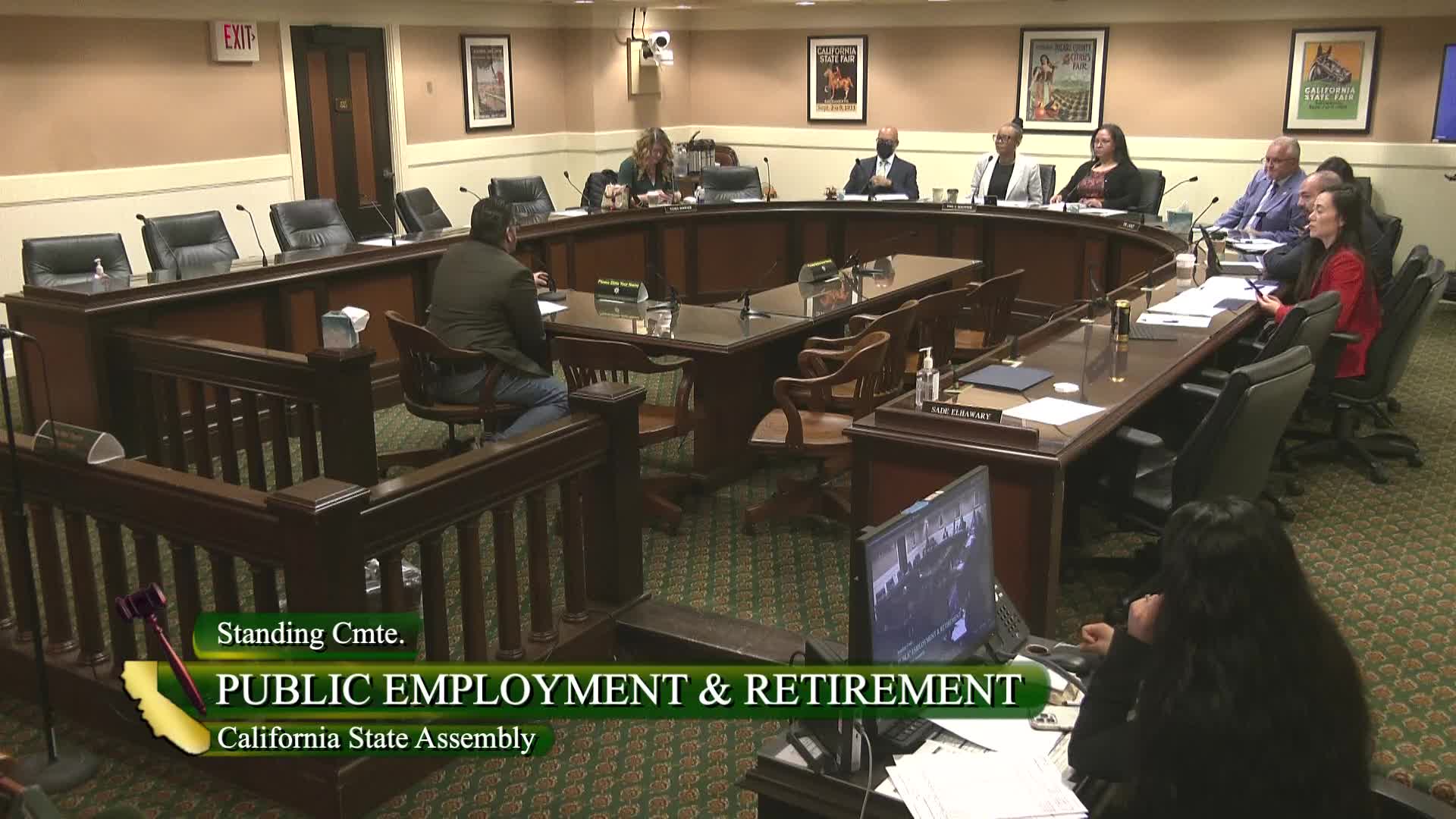Article not found
This article is no longer available. But don't worry—we've gathered other articles that discuss the same topic.

Committee advances bill to lower retirement age for first responders to 55

Committee roundup: committee advances state holidays, personnel and pension bills; motions refer measures to appropriations and education

